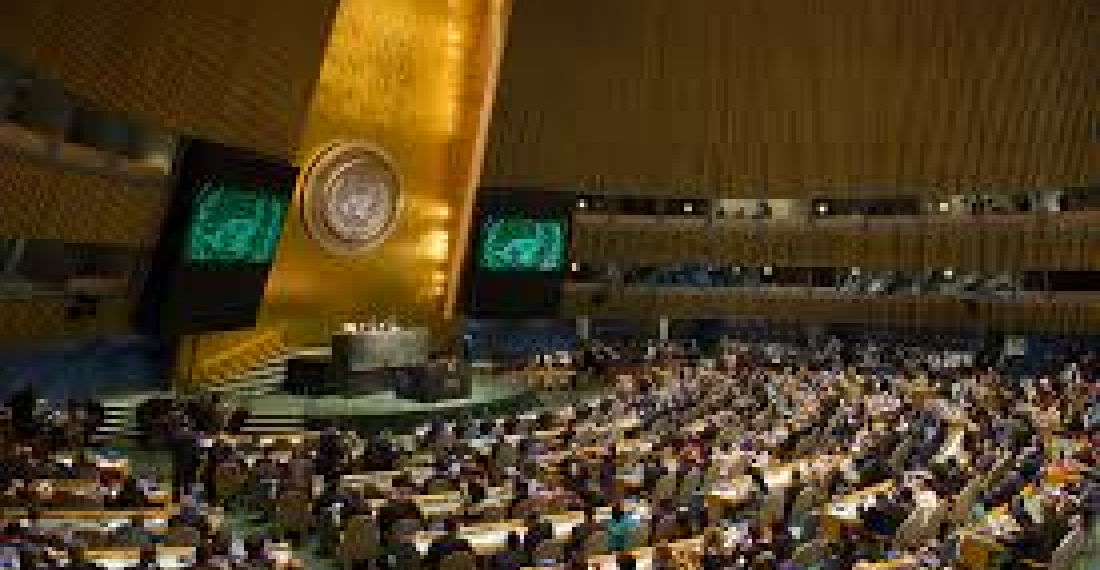The UN General Assembly in a resolution on Monday (17 December) condemned the increasing Russian military presence in parts of the Black Sea and the Sea of Azov. It called on Russia to refrain from impeding the lawful exercise of navigational rights and freedoms and stressed that the presence of Russian troops in Crimea is contrary to the territorial integrity of Ukraine.
The General Assembly by a recorded vote of 66 in favour to 19 against, with 72 abstentions, adopted a resolution that expresses concern about the use of force by the Russian Federation against Ukraine, including seizing three Ukrainian vessels on 25 November. It also called for the release of Ukraine's vessels and crew members it captured.
The Assembly called for the utmost restraint to de-escalate the situation immediately. It also condemned the Russian Federation's construction and opening of the Kerch Strait bridge between the Russian Federation and temporarily occupied Crimea, which facilitates the further militarization of Crimea.
The UN General Assembly further condemned the increasing military presence of the Russian Federation in parts of the Black Sea and the Sea of Azov. It called on the Russian Federation to refrain from impeding the lawful exercise of navigational rights and freedoms and stressed that the presence of Russian troops in Crimea is contrary to the territorial integrity of Ukraine.
The representative of Ukraine, introducing the resolution, said the text's main goal is to urge the Russian Federation to withdraw from Crimea. "It is a matter of utmost important for every Member State to support the principles laid out in the United Nations Charter," he said. Having seen increased militarization of the Crimean peninsula since Russia's occupation began in 2014, he said Russia's aggressive policy towards Ukraine and other Black Sea States entails long-term negative consequences in the region.
The representative of the Russian Federation, following the adoption of the resolution, expressed regret that the text went up for vote, but was glad to see so many delegations abstain. Ukrainian armed forces are waging war on their own citizens, shooting at women, children and the elderly. The United States is providing weapons to Ukraine in an attempt to pit two brotherly people against one other. Kyiv is run by Washington, D.C., he said, adding that Crimea has always been and will always be a part of the Russian Federation.
Earlier the General Assembly, by a recorded vote of 64 against to 25 in favour, with 60 abstentions, rejected a draft amendment proposed by Iran's delegation. The draft would have had the Assembly urge both States to exercise restraint and respect for each other's sovereignty and would have called on both to conduct a full independent investigation into the 25 November incident.
Speaking in the General Assembly debate, the representative of the European Union recalled that the illegal annexation of Crimea by the Russian Federation in 2014 remains a direct challenge to international security with grave implications for the international legal order that protects the unity and sovereignty of all States. Referring to the bloc's declaration on 28 November regarding the dangerous increase of tensions in the Sea of Azov and Kerch Strait, he said the European Union calls "strongly" on the Russian Federation to release the seized Ukrainian vessels and crew members and to ensure free and unhindered access through the Kerch Strait in accordance with international law.
source: commonspace.eu






